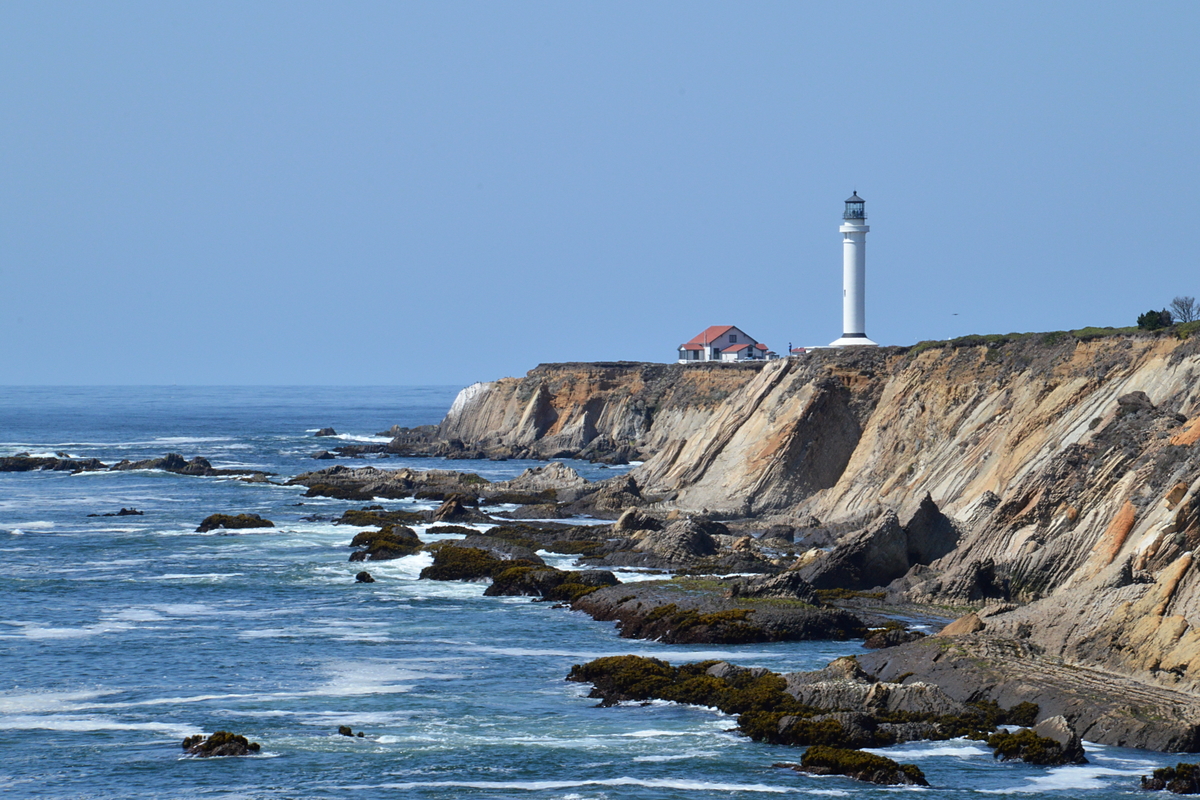THE COMMISSION FOR A RENEWED LUTHERAN CHURCH:
HOLDING THEM ACCOUNTABLE
The ELCA’s Commission for a Renewed Lutheran Church (CRLC) was formed in response to action taken by the ELCA’s 2022 Churchwide Assembly. The assembly directed the Church Council “to establish a Commission for a Renewed Lutheran Church” which would be “particularly attentive to our shared commitment to dismantle racism” and would “present its findings and recommendations to the 2025 Churchwide Assembly in preparation for a possible reconstituting convention.”
As I wrote in my February 2024 Letter from the Director (LINK), the phrase “dismantle racism” is very significant. It reflects the position that racism is not just something that some people think and do. Rather imbedded into the very nature of our society are structures that privilege and empower certain races (white people) and disempower, victimize, and marginalize all other races (BIPOC people). The ELCA is therefore saying that it is not enough to just be non-racist – to not use racist language. We must be anti-racist. We must break down the structures that empower some and dis-empower everyone else. As I also wrote in the February 2024 letter, the report of the “Dismantling Racism” internal committee during the Commission’s November 30-December 2 meeting took the concept even further. According to that committee, it is important that all of the work of the Commission “is completed through an intersectional lens of dismantling racism.” Those also are very significant words. According to the concept of intersectionality, the various systems that privilege and empower some and victimize and disempower everyone else are so intertwined and interconnected that all of these systems need to be dismantled, whether they be white supremacy, male dominance, agism, sexism, ableism, homophobia, transphobia, xenophobia, heteronormativity, or whatever.
Because of all that is involved with the concepts of dismantling racism and intersectionality, I was alarmed when I listened to a video on the Commission’s Facebook page from the two co-chairpersons, Carla Christopher and Leon Schwartz. A link to that Facebook page can be found HERE. In that video Pastor Christopher said, “The language of the memorial and the commitment from each of the members of the CRLC also named dismantling oppression and ensuring equity wherever possible throughout our governing documents and the structure of the church.”
Concerned enough about the full and actual meaning of “dismantling racism,” and then being even more concerned by her changing the language from “dismantling racism” to “dismantling oppression,” I wrote to her. Among my questions were the following –
· What is the difference between dismantling racism and dismantling oppression?
· Is the focus of the Commission going to be on “dismantling racism” (which I would interpret as more narrowly defined) or “dismantling oppression” (which I would interpret as more broadly defined)?
· If the focus is on “dismantling oppression,” how did that change come about and what will it mean?
· How will it be determined who is experiencing oppression?
· Will the working assumption be that if anyone feels oppressed, claims to be oppressed, and/or identifies as someone who is oppressed, that person is oppressed?
I then concluded by asking – since all the members of the ELCA with traditional views who speak up will probably be among the oppressed (even though they represent the majority of the people in the pews) – what will the Commission be doing to address that anticipated oppression?
I also responded to her saying that each of the members of the Commission is committed to “ensuring equity wherever possible throughout our governing documents and the structure of the church.” As glaring examples of inequity within the ELCA I mentioned the complete lack of speakers with traditional views at youth gatherings and Reconciling Works’ having a voice but no vote position on the ELCA Church Council while no organization with traditional views is in the same favored, privileged position.
Within less than two hours I received a response which I considered to be very dismissive and sloppy. In her email she backpedaled from dismantling oppression to dismantling racism. She also mentioned the “limited time and finite resources” of the Commission, insisted that the focus of the Commission “is specifically about structure and governance and constitutional language that may be more helpfully updated or clarified,” mentioned the “diversity of views” among the members of the Commission “regarding institutional structures and the relationships between the current three expressions of church,” and stated the desire of the Commission not to “duplicate or interrupt the work of other task forces,” such as the task force that is working on the statement on human sexuality.
In my response to her response, I did not bring up her mentioning the “limited time and finite resources” of the Commission. But I would say that twenty-two months have passed since the 2022 Churchwide Assembly, which directed the ELCA Church Council to form the Commission, while only fourteen months remain until the 2025 Churchwide Assembly, to whom the Commission is to “present its findings and recommendations . . . in preparation for a possible reconstituting convention.” Unless the Commission does far more in the next fourteen months than it has done in the past twenty-two months, I do not see it as having a report that will satisfy those who were instrumental in the passing of the resolution to form the Commission.
However, I did respond – in order – to several other things she said in her email.
First, in regard to her backpedaling from “dismantling oppression” to “dismantling racism,” I reminded her of the significance of the “intersectionality” language from the “Dismantling Racism” internal committee (which I discussed in the second paragraph of this letter). I told her that I interpreted her mentioning “dismantling oppression” in light of that statement from that committee.
Second, the major part of my email was in response to her stating that the focus of the Commission “is specifically about structure and governance and constitutional language that may be more helpfully updated or clarified.” I shared with her how that statement reminded me of the comments made by the two members of the Commission who held a Listening Session for members of the Grand Canyon Synod, the Synod in which I am rostered. They said that the work of the Commission is focused on structure and governance and that there is no pre-determined outcome to the work of the Commission.
I wrote to Pastor Christopher, “Personally I find that very hard to believe. Everything from the makeup of the Commission – whom the ELCA Church Council chose to serve on the Commission – to the reports of the work of the Commission points to a pre-determined outcome.”
In regards to the makeup of the Commission, I pointed out that 20% – 7 out of 35 – are DEIA officers and/or leaders at their place of employment and/or influence and that the three members of the Commission who serve as assistants to a synodical bishop all work in the area of social justice activism.
I then gave her a link to the article I wrote for the September 2023 issue of our newsletter, CORE Voice, where I discussed the makeup of the Commission – Once You Know the Makeup, You Know the Outcome – Lutheran Coalition for Renewal (CORE)
Regarding the work of the Commission, I also gave her a link to my February 2024 Letter from the Director, where I did an analysis of their November 30-December 2 meeting. LETTER FROM THE DIRECTOR – FEBRUARY 2024 – Lutheran Coalition for Renewal (CORE)
I continued by saying, “I do not see any way in which someone could claim that the Commission is merely concerned with governance and structure and its work does not have a pre-determined outcome. Rather the Commission was formed and is working hard to create a whole new church whose values and priorities will be based not upon Scripture, but upon critical race theory and DEIA ideology.”
Third, I responded to her saying that the Commission was formed so that it would have “a diversity of views regarding institutional structures and the relationships between the current three expressions of church.” I wrote, “The members of the Commission may have a diversity of views on those issues. There is certainly nothing in the reports from the meetings of the Commission that would tell me one way or the other. But the reports of your meetings certainly suggest no diversity of views in regard to the values and priorities that should shape the new Lutheran church.”
Fourth, in response to her saying that the Commission will “stay within our scope and not duplicate or interrupt the work of other task forces,” such as the task force that is working on the statement on human sexuality, I said, “I certainly understand and would agree with that approach.” I explained that I mentioned the complete lack of speakers with traditional views at youth gatherings and ReconcilingWorks’ having a voice but no vote position on the ELCA Church Council but no organization with traditional views being in the same favored, privileged position not because I believe that these are matters that the Commission should concern itself with. Instead they are examples of how – even though each of the members of the Commission has made a commitment to “ensuring equity wherever possible throughout our governing documents and the structure of the church” – it is abundantly clear that in regard to the various positions on human sexuality, equity does not exist in the ELCA.
I concluded by saying, “Thank you again for hearing and considering my concerns. Blessings in Christ.” I signed the letter –
Dennis D. Nelson
Retired ELCA Pastor
Executive Director of Lutheran CORE
So far I have not received a response.
* * * * * * *
VIDEO MINISTRIES
“A SHORT COURSE ON PRAYER”
by CATHY AMMLUNG AND TIM HUBERT
Many thanks to NALC pastors Cathy Ammlung and Tim Hubert for giving us a review of Tim’s book, “A Short Course on Prayer.” A link to their video review and be found HERE. A link to our You Tube channel, which contains reviews of around three dozen books as well as a dozen CORE Convictions videos on various topics related to the Christian faith and life, can be found HERE.
This review is unusual in that it is more of an interview. Tim and Cathy have been friends for over forty years, and he was her ordination sponsor almost thirty-five years ago. Cathy has used various iterations of his manual on prayer throughout her ministry.
In this video review/interview, Cathy briefly describes the layout of the book. But mostly, she and Tim talk about his inspiration for writing it. They discuss the stumbling blocks to prayer experienced by many people. They examine some of the sixteen “prayer forms” in the first half of the book. And they reflect on some of the weightier issues about prayer: the joys and warnings, the hostility of the devil, and the spiritual warfare we are thrust into. Front and center is the insistence that prayer is a conversation, not a monologue. God himself provides words, topics, and insights for that conversation, and his Word grounds and centers every prayer form, directly or indirectly.
The interview is informal and casual, reflecting their long friendship and years of conversation on prayer as well as many other topics.
Folks interested in Tim’s book, for themselves or as a manual for an adult study group, may contact Cathy at [email protected]. She will put you in touch with Tim!




















